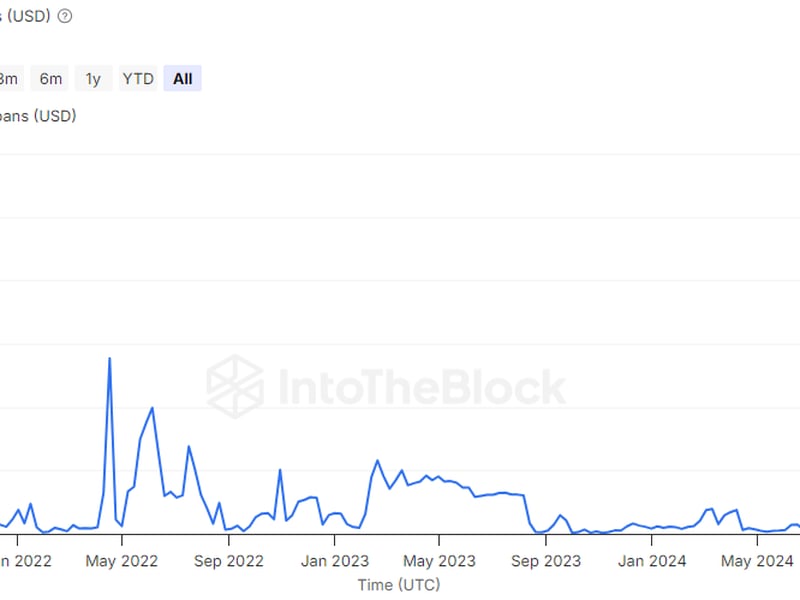The total amount of crypto-collateralized loans within 5% of their liquidation price is at its highest in over two years, according to IntoTheBlock.
The surge in the so-called high-risk loans indicates potential liquidation cascades and market volatility ahead.
The decentralized lending market is booming, with “high-risk” loans surging to over two-year highs, sparking concerns of liquidation cascades and volatility.
The total amount of high-risk loans, defined as those within 5% of their liquidation price, rose to $55 million Wednesday, reaching the highest since June 2022, according to data tracked by analytics firm IntoTheBlock.
Crypto traders often draw loans from decentralized lending platforms by locking in collateral in the form of digital assets. The risk here is that if the value of the collateral falls too much, the protocol liquidates the debt by selling off the collateral. A loan within 5% of the liquidation price means if the collateral’s price falls by 5%, it will no longer cover the loan, triggering liquidation.
Thus, the surge in these risky loans is noteworthy as it can lead to a liquidation cascade. In this self-reinforced process, a series of liquidations happen quickly, lowering crypto prices. That, in turn, causes further liquidations and increased market turbulence.
“Large liquidations can impact the collateral value, putting more loans at risk of liquidation, creating a downward price spiral,” IntoTheBlock said in a market update. “Rapid market drops may result in insufficient collateral to cover loans, resulting in bad depth and losses to lenders.”
IntoTheBlock added that bad debt can negatively impact market liquidity, making it difficult to trade large orders at stable prices. “Bad debt can keep lenders from adding new liquidity to prevent potential losses,” the firm noted.

